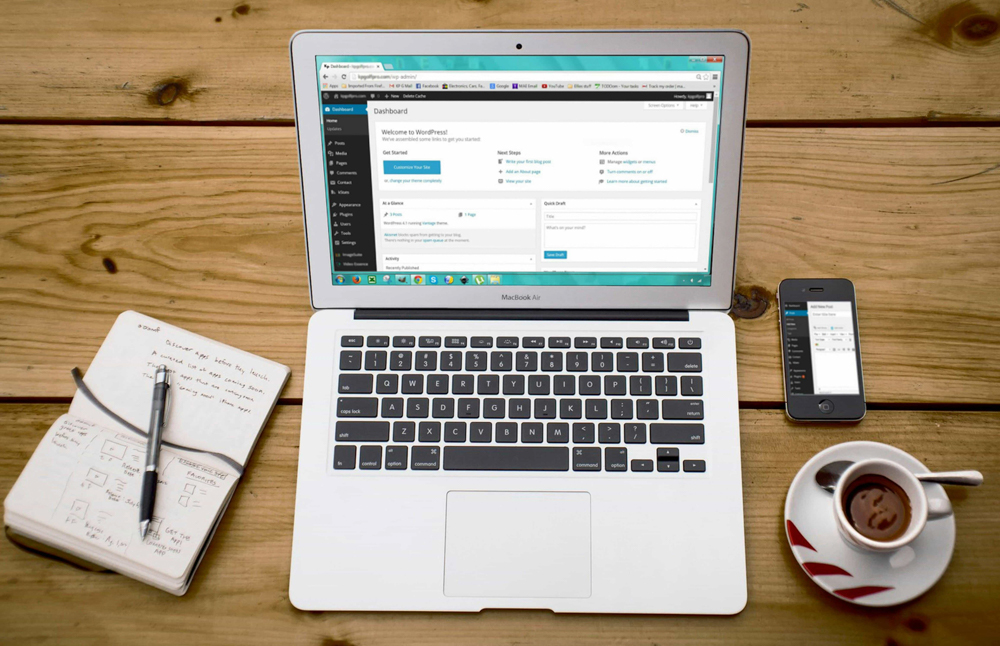Whether you wish to share your thoughts online, launch an e-commerce store, or expand the online presence of your business, having a website is essential.
However, delving deep into web development and web building is a daunting task, and hiring an expert developer might be costly.
This is where website builders come into play.
Website builders are handy platforms that help you create a website without dealing with web development and instead provide you with intuitive tools and functions that make building a website straightforward and fast.
Website builders are an affordable and very versatile alternative, compared to other ways to create a website, and because of their numerous advantages have become very popular among Internet users.
Table of Contents:
What is a Website Builder

A website builder is a software platform that allows you to create a fully functional website without understanding, writing, and editing code. Such platforms provide you with numerous features and tools you can use to design, customize, and work on your website simply and intuitively.
Website builders are a very convenient solution for freelancers, business owners, and people with limited tech knowledge who want to publish a website without investing too much in learning informatics and web development.
How Website Builders Work

Website builders feature various easy-to-use functions such as drag-and-drop that, at their core, convert any action you take into code.
Furthermore, to make your site-building project even easier, most site builders come with a variety of themes. These are pre-made design templates suitable for different types of websites. For example, the theme for a given ecommerce website would be different from the theme for a personal website.
Depending on the type of site builder, the customization options for each theme can vary – you can work with color schemes, modify different website elements, choose text design, incorporate media, add contact forms, and animations, and so much more.
Popular Website Builders

There are many different website builders out there. However, some are more popular than others. In the following sections, you will read about the most popular site builders and their features.
WordPress
By far, WordPress is the most popular website builder. The platform is very versatile and is suitable for numerous types of websites. Depending on how you use it, WordPress is completely free, and should you decide to use premium features, it can remain one of the cheapest website builders out there.
You can use WordPress as an ecommerce website builder, small business website builder, and an online blog platform. In fact, you can use WordPress to build any kind of website.
Thanks to its user-friendly interface and vast library of themes and plugins, the WordPress website builder is a great choice for your website.
If you are interested in creating a website with WordPress, then have a look at our special WordPress hosting service, register a domain, and start working on your website today.
Furthermore, you can use the vast AwardSpace library of WordPress tutorials to get the website builder deeper and create an even better website.
Read also:
Zacky Website Builder
Zacky is a simple drag-and-drop website builder that helps you craft a website easily via intuitive drag-and-drop functionality and easy-to-use tools.
If you are interested in trying out Zacky, then you can register for any of our hosting services – Zacky website builder comes as a standard feature on all our hosting plans.
Also, if you are not sure whether Zacky is the proper website builder for you, you can always try it out for free with our special free web hosting plan.
Joomla
Joomla is an open-source CMS (content management system) that is widely used by webmasters to craft dynamic websites and manage them via a handy admin panel and tons of handy tools.
If you are interested in trying out Joomla, register for any of the AwardSpace hosting plans, where the website builder is freely available.
Drupal
Drupal is another open-source website builder that can help you craft a beautiful website, an ecommerce store, or anything else via handy tools and an intuitive interface.
Drupal is the foundation of numerous websites worldwide, ranging from personal blogs, and corporate and political websites, to governmental and NGO platforms.
Try out Drupal for free with the AwardSpce free hosting plan.
How to Build a Website with a Builder

Creating a website with a builder can be very quick and easy. You simply need to register for a web hosting plan, register a domain name for your website, and install your preferred website builder. Then, you can start adding pages, work on the design, come up with content ideas, and eventually publish your beautiful and fully functional website.
Here’s how to proceed:
- Register to any of the AwardSpace hosting plans. If you are not sure which one is for you, then you can start your website-building journey with our forever-free hosting plan.
- Register a domain name.
- Install WordPress or any other website builder from the vast AwardSpace library.
- Start working on your website today.
Conclusion

Website builders are very handy, as they help numerous organizations and people build a website without delving into web development or hiring experts.
Read also:
- How do Websites Work
- What Makes a Great Website
- What are Different Ways to Build a Website
- What is a Content Management System
- How to Install WordPress
- Website Building 101: Quick Starting Guide
- How to Log into Your CMS Dashboard
- 8 Most Important Website Elements
- How to Get Started with Affiliate Marketing
